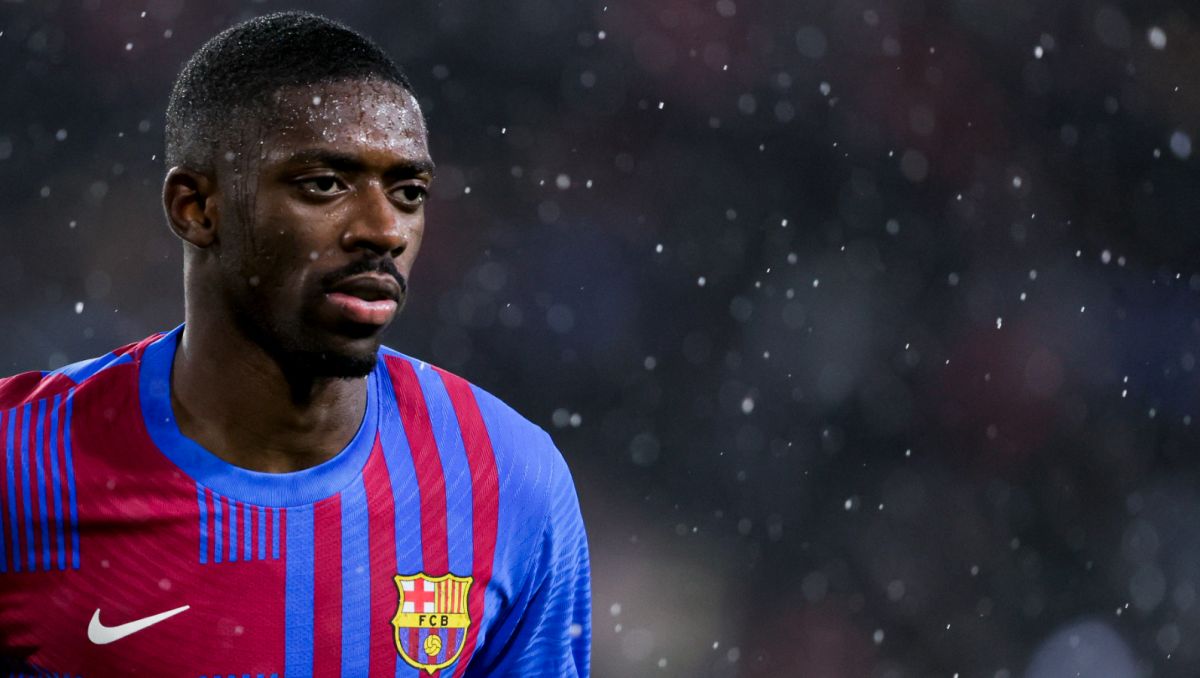Under the Paris lights at the Théâtre du Châtelet, Ousmane Dembele’s name was called and a chapter of football history turned. The French winger lifted the Golden Ball after a season of irresistible speed and end product, a triumph that defined the Ballon d’Or 2025 ceremony and set social media humming from Barcelona to Lagos.
Dembele’s win felt like both culmination and rebirth. After years of promise and setbacks, the 28-year-old finally put together the campaign his talent always promised, leading Paris Saint-Germain to a historic treble of Ligue 1, the Coupe de France and the club’s first ever UEFA Champions League title. He finished the season with 35 goals and 16 assists, numbers that became the spine of his case and the thread that ran through every toast to PSG’s year.
On stage, Dembele was moved and meticulous with his gratitude. He thanked PSG for betting on him in 2023 and singled out leaders who stood by him. The winger described club president Nasser Al-Khelaifi as like a dad, and said the same of coach Luis Enrique, before turning to the dressing room that powered the run. The message was clear, that this individual prize was stitched from a collective fabric.
The moment acquired extra sparkle when Brazilian icon Ronaldinho handed over the award. In a ceremony built on narrative and nostalgia, a past master passed the torch to a player who had long sought consistency. Dembele’s words captured that arc, that he had no words for what he had just experienced, that it was an incredible year with PSG, and that the dream had always been to win for the team.
Even away from the stage, the embrace arrived. Lionel Messi, the eight time winner and former Barcelona teammate, dropped a line that resonated across timelines.
“Grande Ous !!! Congratulations I’m so happy for you. You deserve it,”
wrote Messi, a succinct benediction from the award’s greatest modern figure to its newest member.
Dembele’s bond with Messi runs deeper than a message. In his acceptance speech he placed the Argentine among the mentors who shaped him, alongside names such as Andres Iniesta. He also credited the clubs that formed his journey, from Rennes to Dortmund to Barcelona, a humble roll call that connected his breakthrough years to this Paris pinnacle.
There was a dose of grit tucked into the glory too. Dembele attended the gala with permission while recovering from an injury picked up on international duty, missing a rescheduled league match against Marseille. He is targeting a return for PSG’s next domestic assignment against Auxerre, an early reminder that even the Golden Ball sits inside the grind of a long season.
The rankings that stirred debate
No Ballon d’Or night is complete without a flare of debate. The men’s top five saw Dembele ahead of Barcelona’s Lamine Yamal and PSG teammate Vitinha, with Liverpool’s Mohamed Salah in fourth and Barcelona’s Raphinha fifth. It was a hierarchy that acknowledged the impact of PSG’s treble while spotlighting a teenager whose rise has been impossible to ignore.
Reactions came swiftly. Brazil star Neymar was blunt on Instagram, bristling at Raphinha’s place in the list.
“Raphinha in 5th is too much of a joke,”
he wrote, a defender’s tackle of a comment cutting into the night’s consensus. Raphinha had stormed through Europe with a record breaking Champions League campaign of 13 goals and eight assists as Barcelona reached the semifinals, an output that made his fifth place both a compliment and a controversy.
In Liverpool, the mood mixed pride and frustration. The club marked Salah’s season with an affectionate post, calling it a season to savour and tagging the Premier League’s account, while supporters flooded the replies to argue their king deserved more. It was the familiar tension of awards season, where silverware can sway judges, but different leagues and storylines ask their own questions about value.
Why Dembele’s season towered
The thread that tied it together for Dembele was balance. Under Luis Enrique he evolved into a complete forward, one whose searing runs were paired with smart pressing and precise finishing. He did not simply decorate PSG’s attack, he drove it, and he finished as Ligue 1’s top scorer while being decisive in the Champions League. In a year when voters often reward the protagonists of great teams, Dembele became the face of PSG’s modern peak.
That broader dominance was recognized across the room. PSG were named men’s Club of the Year after a campaign of 48 wins and 168 goals en route to a fourth straight Ligue 1 title and the Champions League crown. Luis Enrique was honored as men’s best coach, a fitting bookend to the player who had just thanked him as a mentor. The spine of Paris set the tone for the evening’s biggest prizes.
The women who lit up the night
Aitana Bonmati extended her era with a third consecutive women’s Ballon d’Or, a milestone that arrived with a statement about the growth of the women’s game. The ceremony added new women’s categories, including awards for best goalkeeper, top scorer and best young player, a shift Bonmati highlighted as equality long called for and finally achieved in the structure of the night.
The cast of winners told a story of depth and range. England manager Sarina Wiegman was named best coach after guiding the Lionesses to back to back European titles, a landmark that also marked the first time an England national team coach has won the Johan Cruyff Trophy. Chelsea’s Hannah Hampton was recognized as best goalkeeper, Poland’s Ewa Pajor received top scorer honors, and Arsenal were named Club of the Year on the women’s side.
Youth had its moment too. Barcelona’s Lamine Yamal took home the Kopa Trophy for best young men’s player for a second year in a row, while Barcelona’s Vicky Lopez won the women’s Kopa Trophy. These were crowns for the next generation and a sign that the sport’s future is already affecting the present.
Wiegman, Burna Boy and a joyful crossover
Among the night’s most human moments, Wiegman looked across the hall and invited a celebration with Nigerian music superstar Burna Boy.
“If Burna Boy is around maybe we could do a little bit of dancing too,”
she said, a line that sent a smile around the room and soon went viral.
Burna Boy’s response was instant and warm.
“haha, I’m up for it Sarina! A huge congrats to you and the team,”
he posted on X, renewing a connection born on the Lionesses’ Euro 2025 victory parade when he surprised Wiegman on stage and the pair shared a dance to his hit For My Hand. It was proof that football and music often share the same rhythm and that the Ballon d’Or stage can be as much about culture as it is about trophies.
Style, stars and Afrobeats on the red carpet
The red carpet added its own pulse to Paris. Nigerian Afrobeats star Adekunle Gold, a Manchester United supporter, made one of the evening’s boldest entrances in a tailored Louis Vuitton suit and a rare Vanguart Black Hole Tourbillon watch in rose gold. The timepiece carries an approximate price tag of 350,000 dollars, about ₦550 million, which made it the conversation piece of his look.
Gold captured the moment in a post that read like a personal manifesto.
“Don’t let anyone tell me I don’t deserve this. I prayed for this all my life. The Ballon d’Or was an inspiring moment. Styled in Louis Vuitton x Vanguart x Tuffman,”
he wrote. His presence, coming a year after fellow Nigerian artist Rema graced the gala, underscored how Afrobeats continues to travel with football’s biggest nights.
It was also a night of pride for Nigerian football followers. The musician was in Paris to cheer compatriots who drew recognition, including goalkeeper Chiamaka Nnadozie, who finished fourth for the inaugural Women’s Yashin Trophy, and coach Justin Madugu, who was acknowledged among the honourees. The red carpet felt like a meeting place for continents and cultures.
Goalkeepers and the game’s guardians
Between the posts, the spotlight fell on Gianluigi Donnarumma, who received the men’s best goalkeeper award, the Yashin Trophy. The women’s honour went to England’s Hannah Hampton, a pairing that placed two assured shot stoppers at the centre of the evening’s expanded canvas. In a related note for Liverpool fans, Alisson Becker finished second in the Yashin Trophy voting, another nod to the depth of elite goalkeeping this season.
Strikers also took their bows. Viktor Gyokeres collected the Gerd Muller Trophy for best striker on the men’s side, while Ewa Pajor took the women’s equivalent, confirming a theme that the goals that made 2024 and 2025 so compelling were spread across different leagues and styles.
The meaning of a golden night
For Dembele, the award marked a homecoming to his promise and a leap into his prime. He became the sixth Frenchman to win the Ballon d’Or and the first since Karim Benzema in 2022, a lineage that now stretches from Raymond Kopa to a Paris forward who finally found fluency. If the Ballon d’Or has often been a barometer for eras, then this one speaks to the power of a well-built collective elevating a uniquely gifted individual.
For Barcelona, the night still carried sunlight. Yamal’s Kopa Trophy and second place in the main vote solidified his status as the most exciting teenager in the sport, and Vicky Lopez’s award reinforced the club’s talent pipeline on the women’s side. Even Raphinha’s fifth place, debated as it was, rested on numbers in Europe that are difficult to replicate.
For England, Wiegman’s recognition felt like an embrace of a wider movement. Her speech framed the progress of the women’s game as a journey shared, that records have been broken, that the growth is real, and that the award reflects a team and a community as much as a coach. Her light hearted shout to Burna Boy added a human touch to a career built on relentless standards.
And for the Ballon d’Or itself, the ceremony’s expanded women’s categories seemed to confirm a shift. With separate awards for best goalkeeper, top scorer and best young player added to the platform, the stage felt broader and more aligned with the modern game. Paris became a mirror, reflecting a sport that keeps adding new rooms to its house.
In the end, the image that lingers is simple. Dembele with the Golden Ball in his hands, eyes glassy, a former teammate offering joy from afar, teammates and coaches folded into his thanks, and a chorus of voices still arguing about the order of things. That, in many ways, is the magic of the Ballon d’Or, the mix of certainty and debate, of star power and human moments, all gathered under one roof for a night when football tells its own story.






